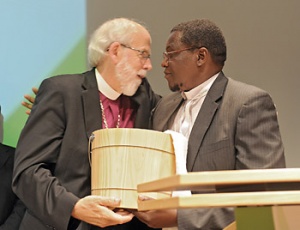The earliest Baptists were first and foremost English Separatists who came to baptistic convictions. As good Protestants, they came to these convictions through their reading of Scripture. We should rightly emphasize the English Separatist roots of the Baptist movement and not downplay the role that the Bible played in shaping Baptist convictions.
But the earliest Baptists were aware that they were not the first baptistic Christians since the New Testament era. In fact, just like us they were aware that there had at least occasionally been free church movements in church history. Some of these groups likely immersed, though there is evidence that there were soteriological deficiencies and other shortcomings among the independent medieval sects. But Baptists knew that they were not taking a historically novel step in arguing for religious liberty, believer’s churches, and credobaptism.
Even more importantly, Baptists recognized that the Continental Anabaptists had recently rejected infant baptism, mixed membership, and state churches. Furthermore, both General and Particular Baptists actually interacted with these Anabaptists, though the Arminians appeared to have been more inclined to such interaction than the Calvinists. It seems very unlikely that the Anabaptists had no influence on the earliest Baptists.
Add to the mix the milieu in which the earliest Baptists found themselves: a century in which England was filled with various forms of political radicalism, ecclesiastical reform movements, theological innovation, and a multiplicity of sects. These movements interacted with each other and at times even cross-pollinated each other, resulting in what historian Christopher Hill calls “
a world turned upside down.” This was certainly true of the Baptists, where even the line between Calvinists and Arminians were not neatly drawn until after the English Civil War, though that is another discussion for another day.


